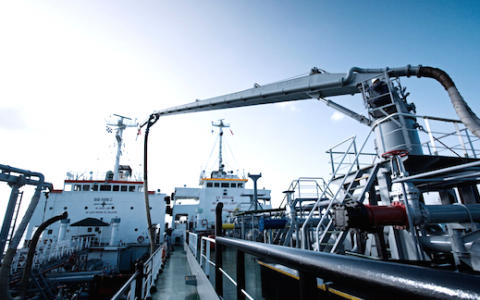Global Shippers’ Forum calls for market-based measures to combat emissions

As the COP21 climate change talks continue in Paris, the Global Shippers’ Forum (GSF) has called on the shipping industry to reach agreement on a market-based measure for carbon reduction or risk having rules enforced.
The GSF has released a statement outlining its view on how the maritime sector should address the issue. It is keen to avoid what it described as “a patchwork approach of national CO2 targets” which would be complex to manage. GSF wants the shipping industry to be proactive in agreeing voluntary measures.
The EU is already proceeding with its own monitoring, verification and reporting system in the absence of an IMO agreement.
Chris Welsh, secretary-general of the GSF, said: “All stakeholders agree that additional measures are needed to reduce CO2 emissions from the maritime sector. The debate now is how to get this done. We believe the International Maritime Organisation should retain responsibility for this issue given its strong track record, but more progress is needed on appropriate market-based measures (MBM).
“It is crucial to select a measure that will incentivise technical and operational measures to reduce CO2 and not simply pass on additional costs to shippers. The Ship Efficiency Credit Trading (SECT) proposed by the United States comes closest to meeting the principles for a good MBM set out by GSF”.
GSF says the shipping industry needs to set its own challenging but achievable voluntary CO2 reduction targets for the maritime sector or risk targets being imposed. Progress is currently being made with the development of a global data collection system but GSF is calling on the IMO to accelerate progress on MBMs, which have been debated for the last few years without reaching a consensus.
GSF opposes a global bunker fuel levy approach which it reckons risks passing costs on to shippers and distorting trade without reducing maritime CO2 emissions. “Such an approach has been rejected by the equivalent global body for aviation (ICAO) for the same reason,” the forum noted.
Meanwhile, the IMO and ICAO were handed an unwanted award yesterday. The pair were handed the satirical Fossil of the Day award in Paris for what NGO Climate Action Network said was their “totally inadequate contributions to fighting climate change”.
“Emissions from planes and ships are the elephants in the climate talks room as they remain the only sectors of the international economy not being required to submit reduction pledges,” said another NGO, Transport & Environment, in a release.

Is it possible that a FOSSIL organization such as the IMO can do anything other than move as slowly on this issue as the combined inertia of the entire shipping industry ?
The role of enforcement of much higher paced reforms and the application of radical CO2 reduction must be taken away form this totally inept group of self adulating chair jockies and put back in the legally binding remit of the UN.
If the shipping industry wants to get anything other than the reputation of the filthy industry that it currently deserves, it will have to embrace new clean technology including renewables, and reduce its CO2, NOX , SOX and PM footprints in the imediate future.